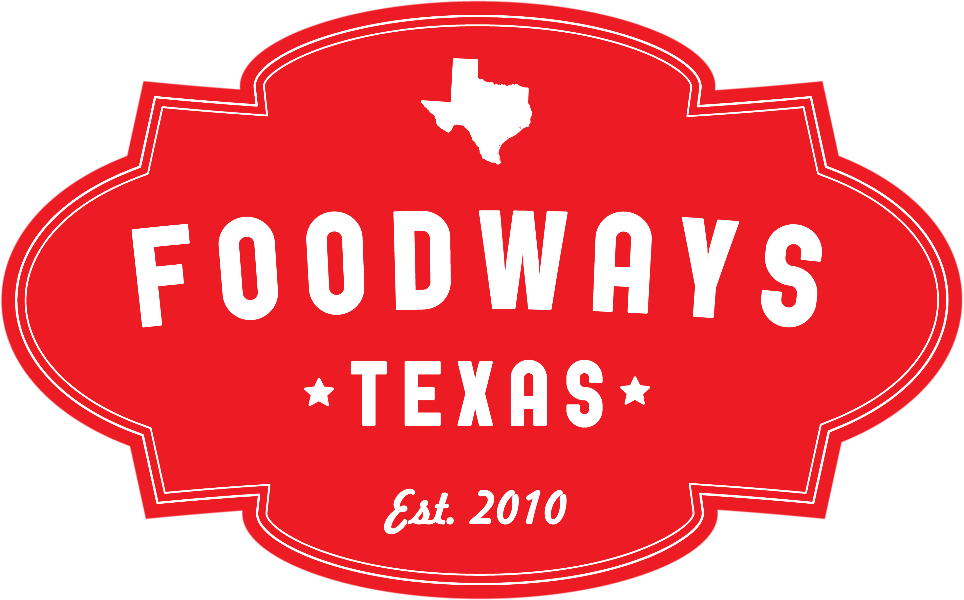Interviewer: Amanda Gray, Jennifer Rafferty, and Gavin Schwan
Location: Zentner's Daughter, 1901 Knickerbocker Road, San Angelo, Texas 76904
This interview for the Texas Iconic Restaurant Oral History project was produced in collaboration with the Department of American Studies at the University of Texas, Austin, and the Texas Restaurant Association.
Betty Zentner was working in a department store in 1974 when she was presented with the opportunity to open Zentner’s Daughter, her San Angelo restaurant. By then, the Zentner name was well known in West Texas because Betty's father, John Zentner (1899-1994), opened a number of popular steakhouses throughout the region.
True to the Zentner family tradition, the restaurant primarily focuses on its steaks. The restaurant’s interior pays tribute to the Zentner legacy, with rooms named after Betty's relatives and walls adorned with paintings and pictures of family.
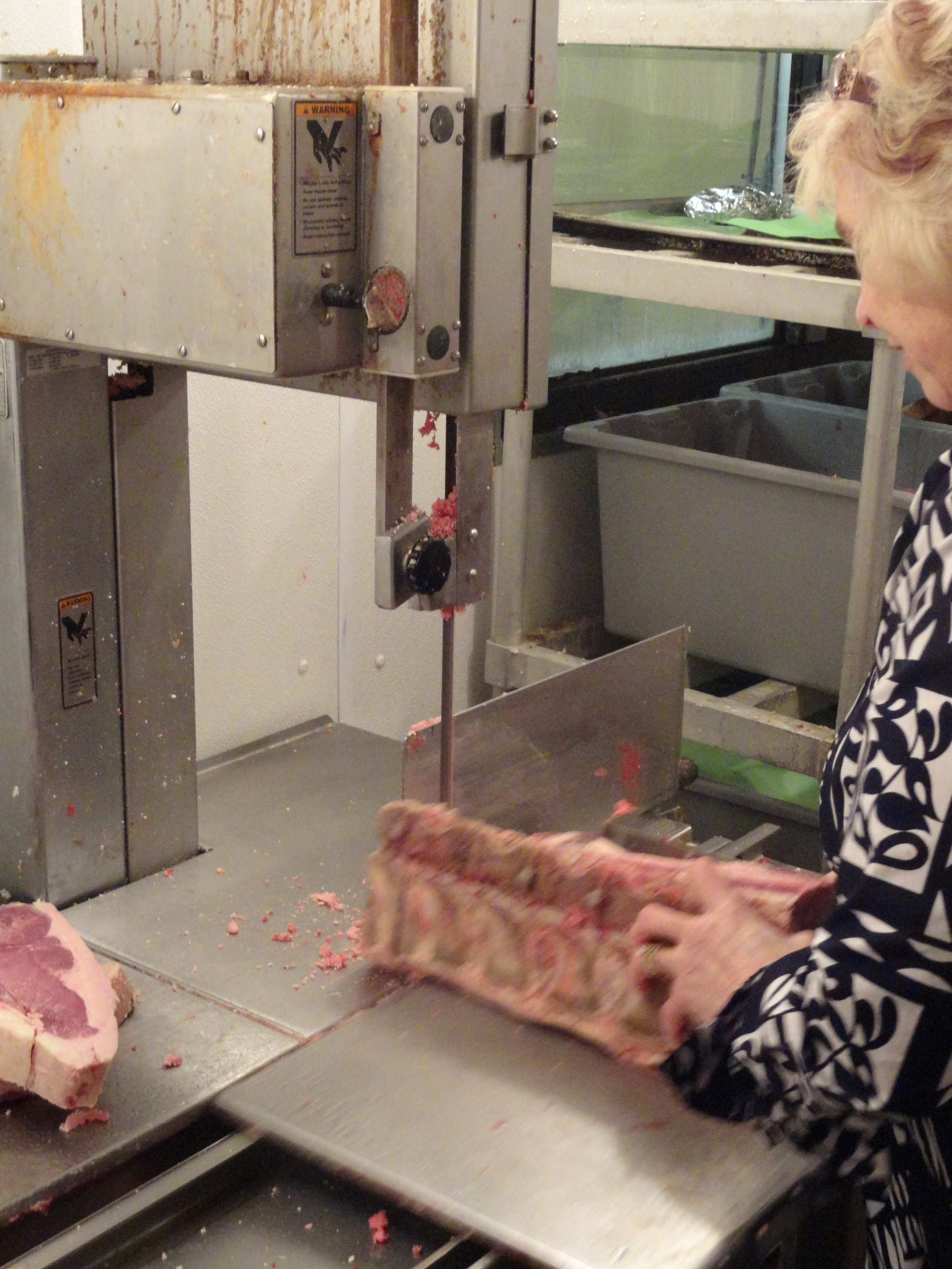
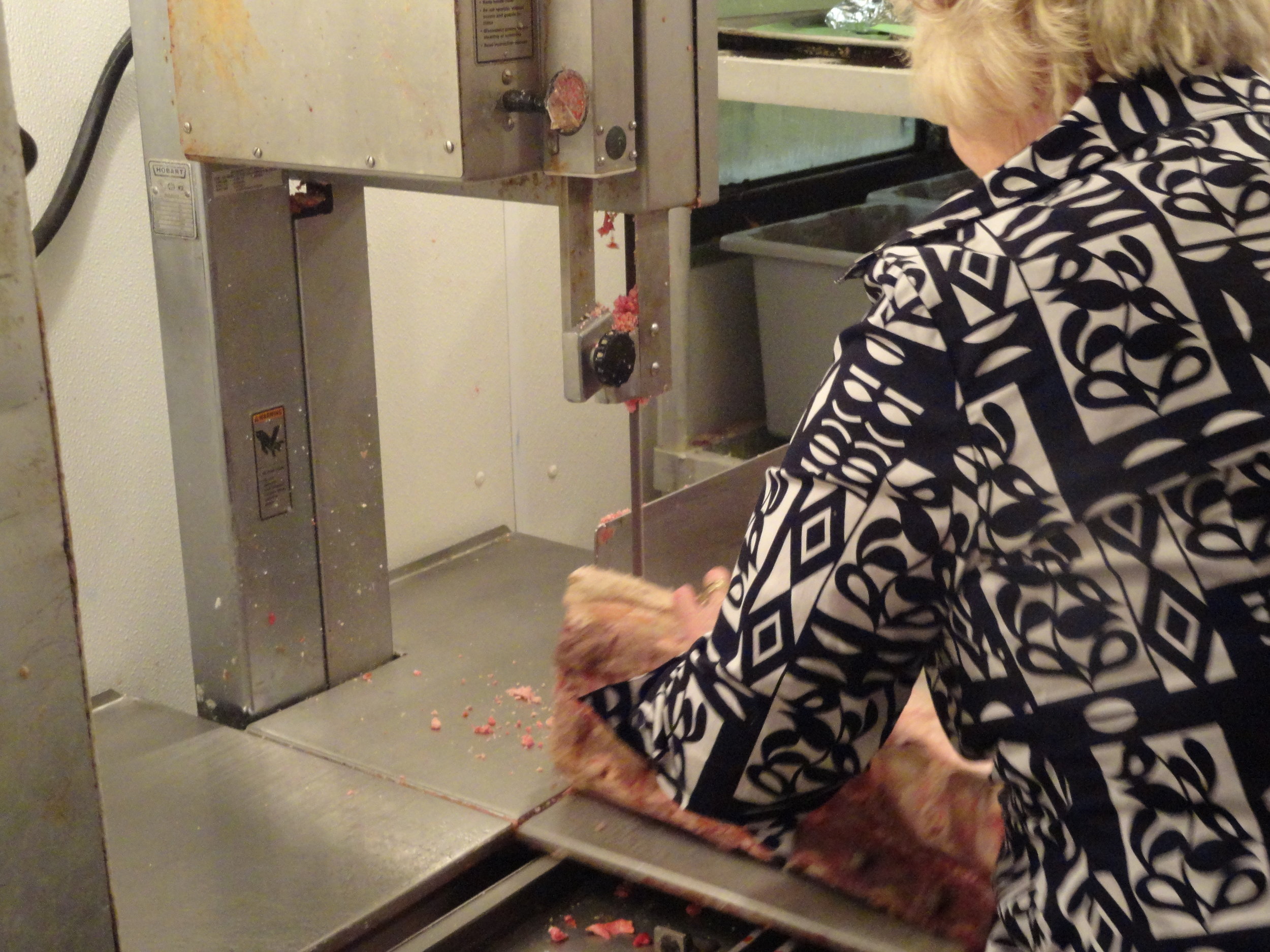
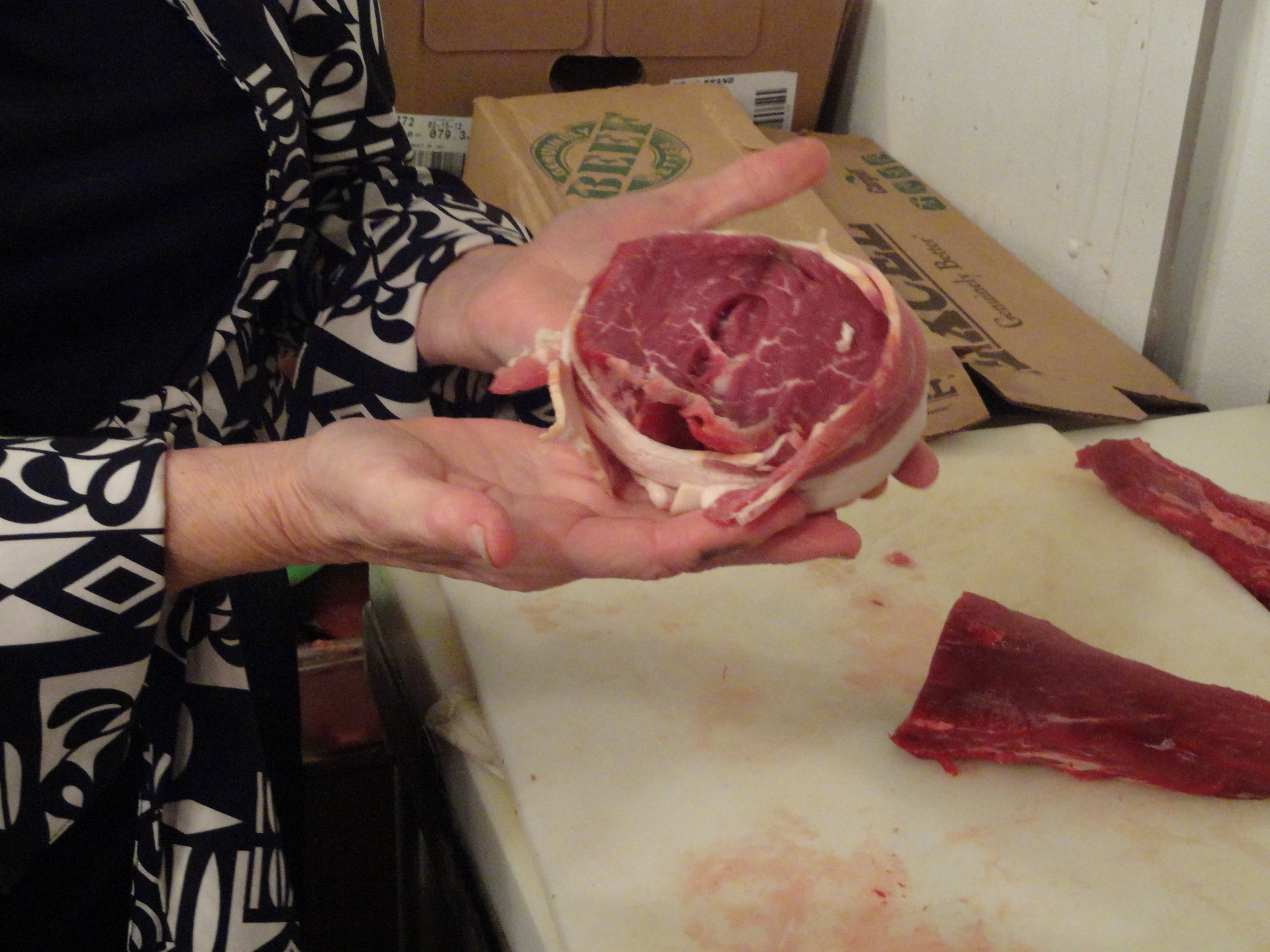
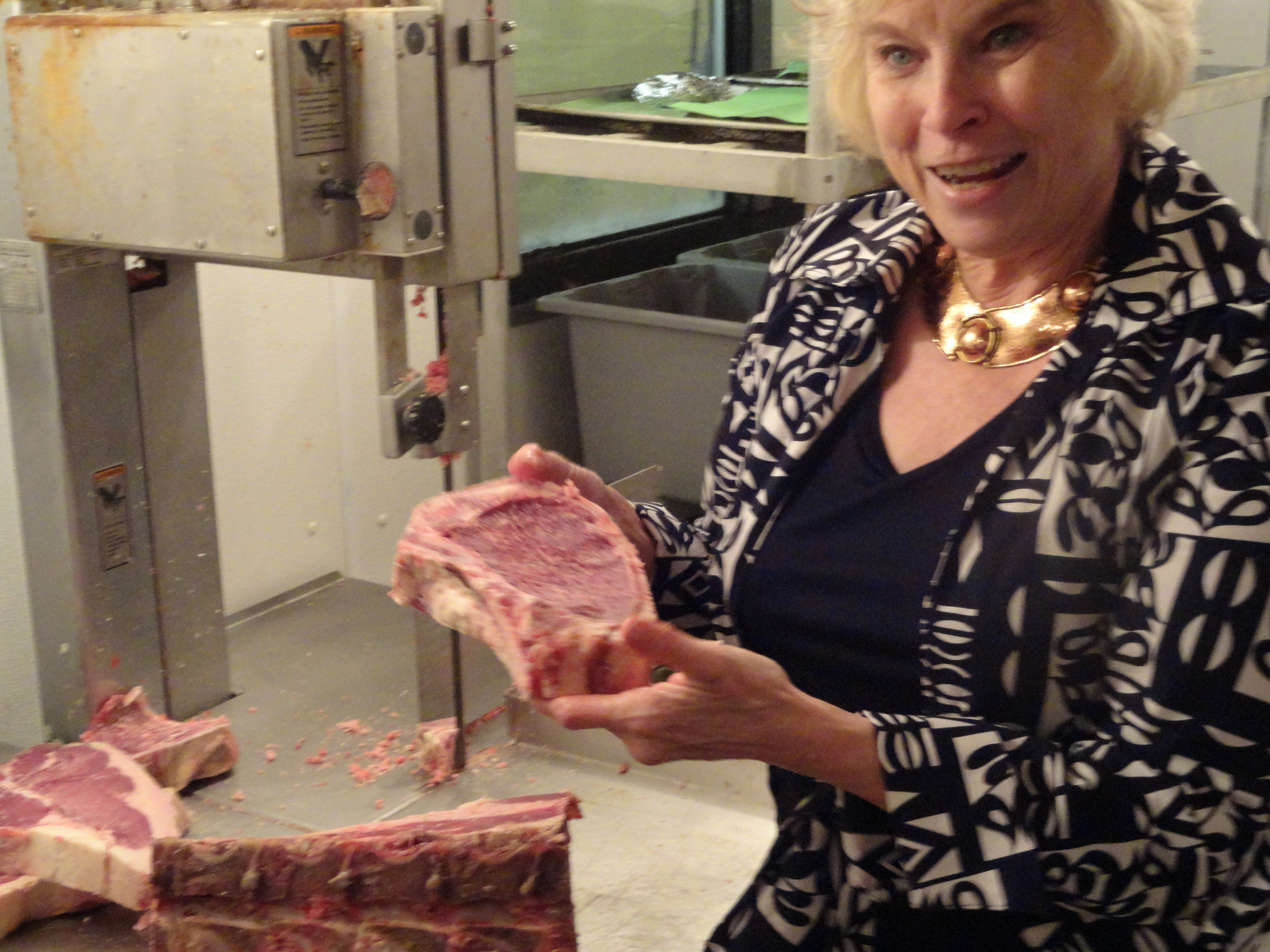
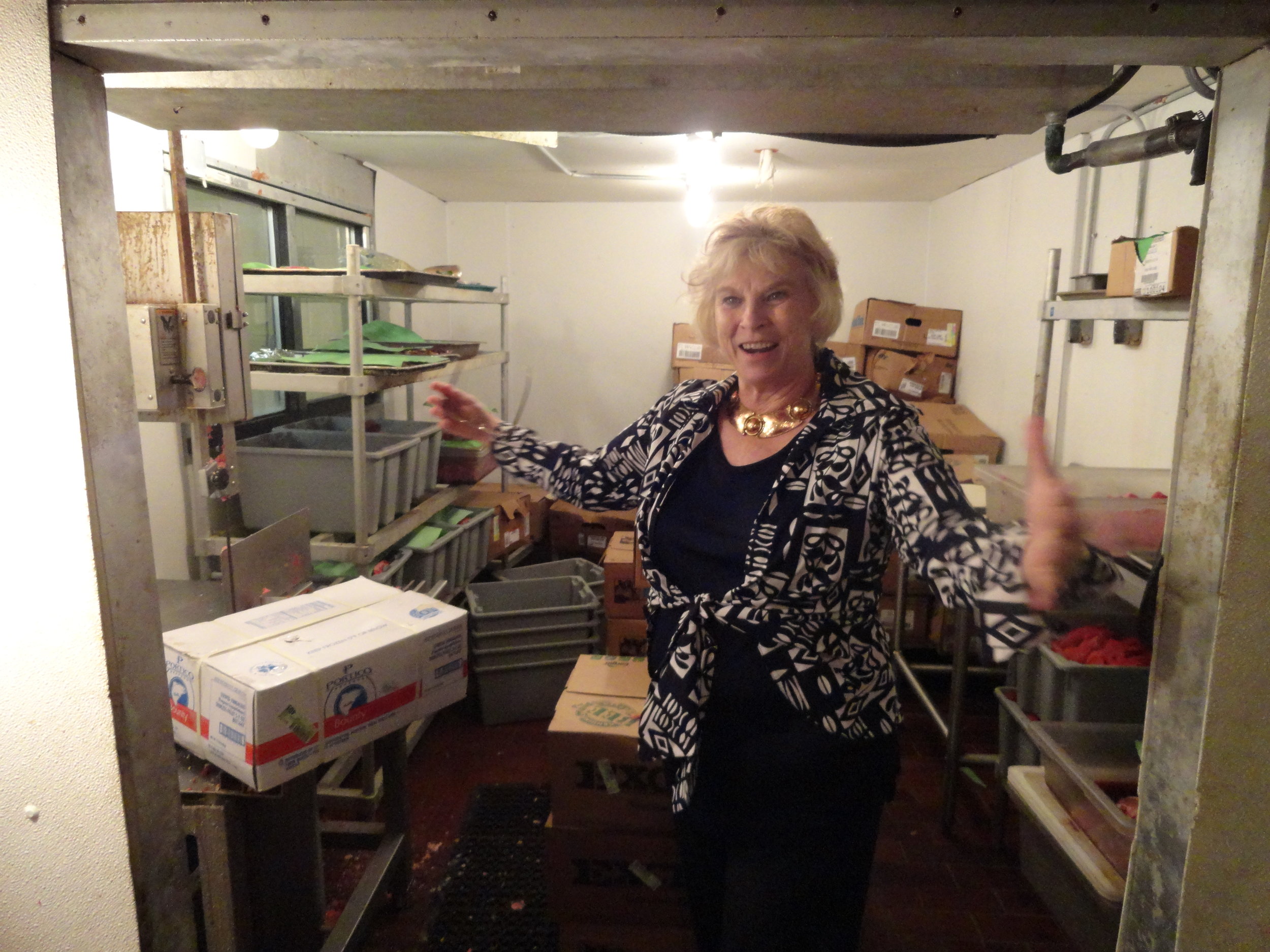
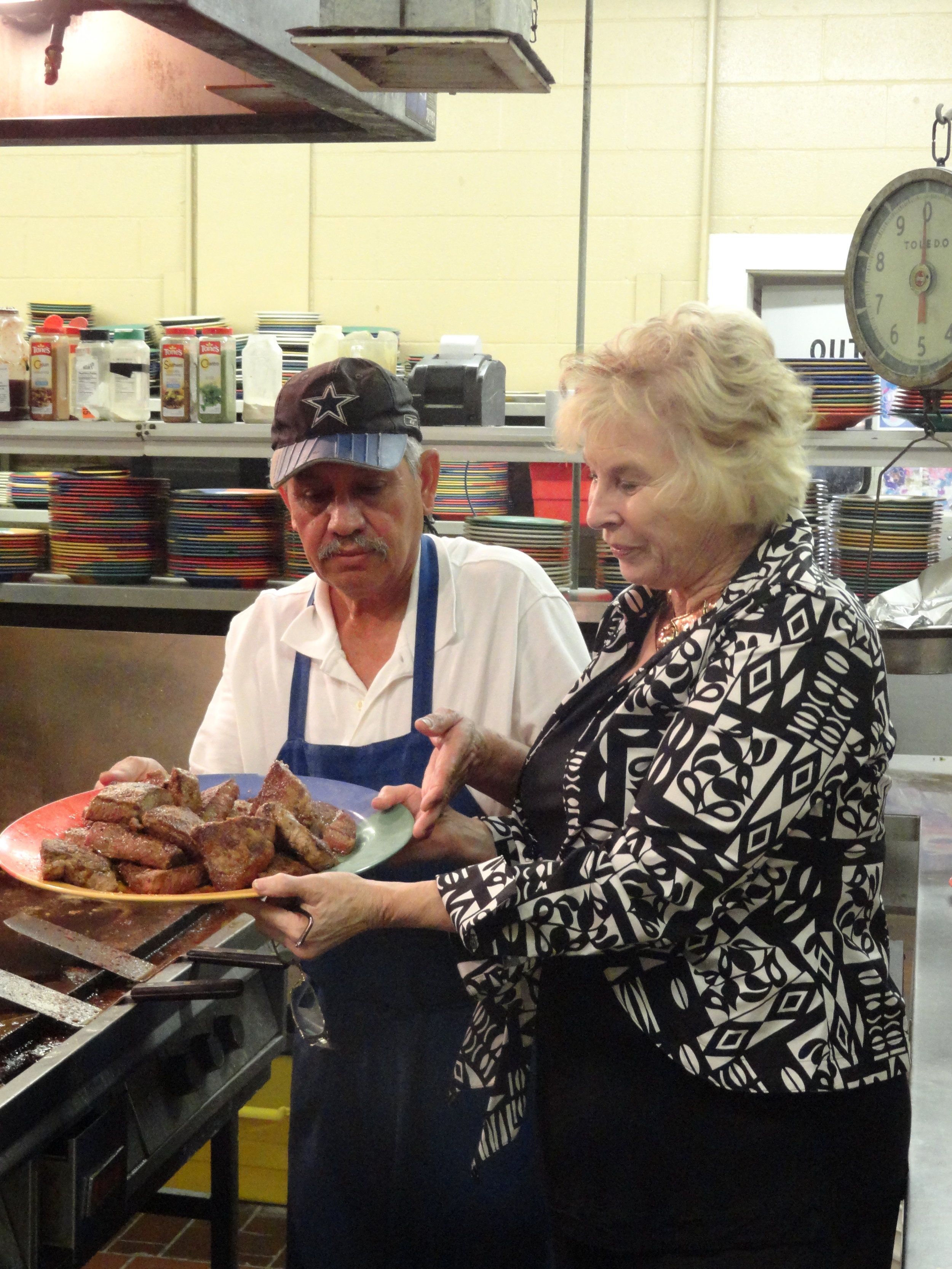
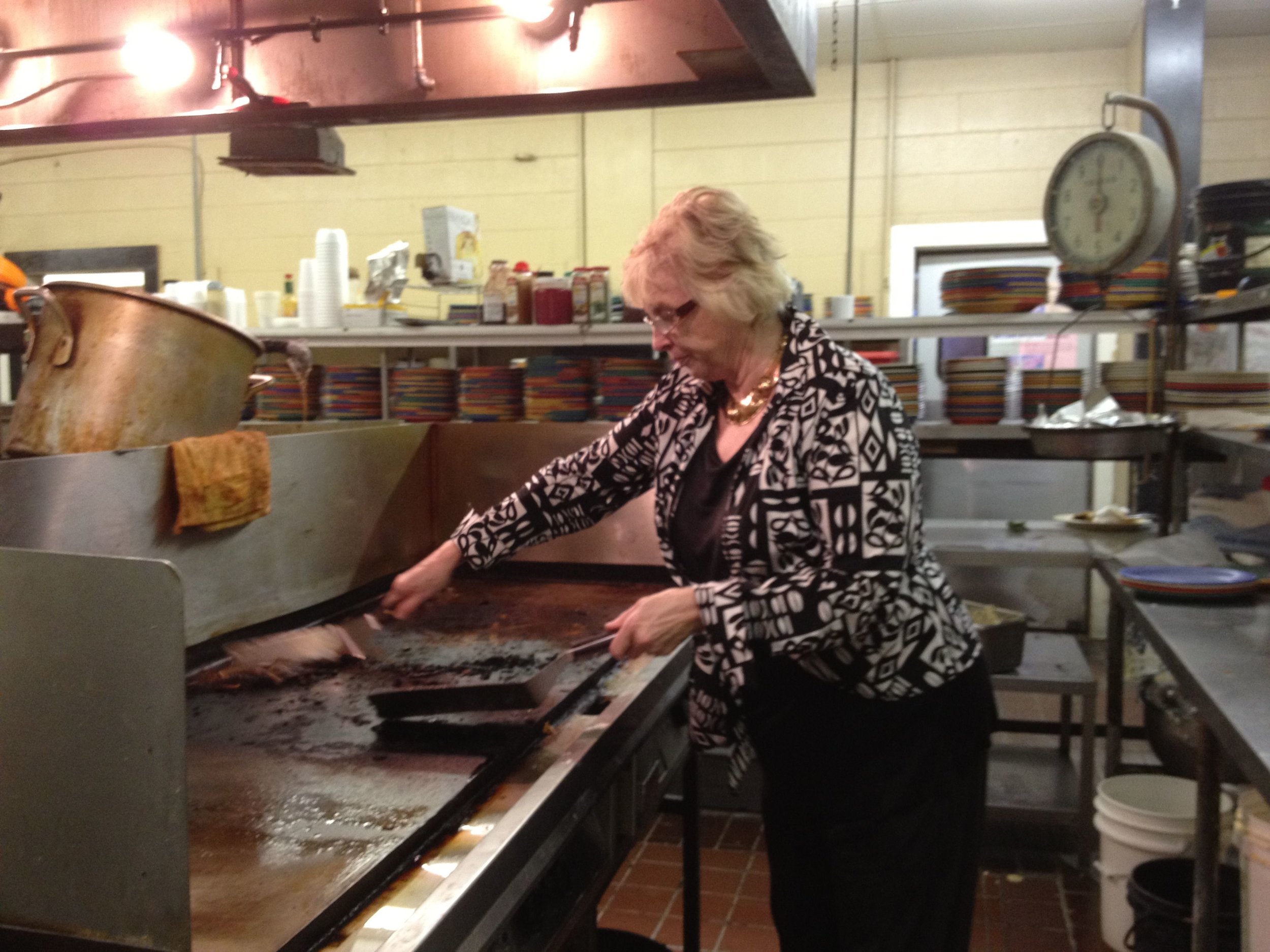
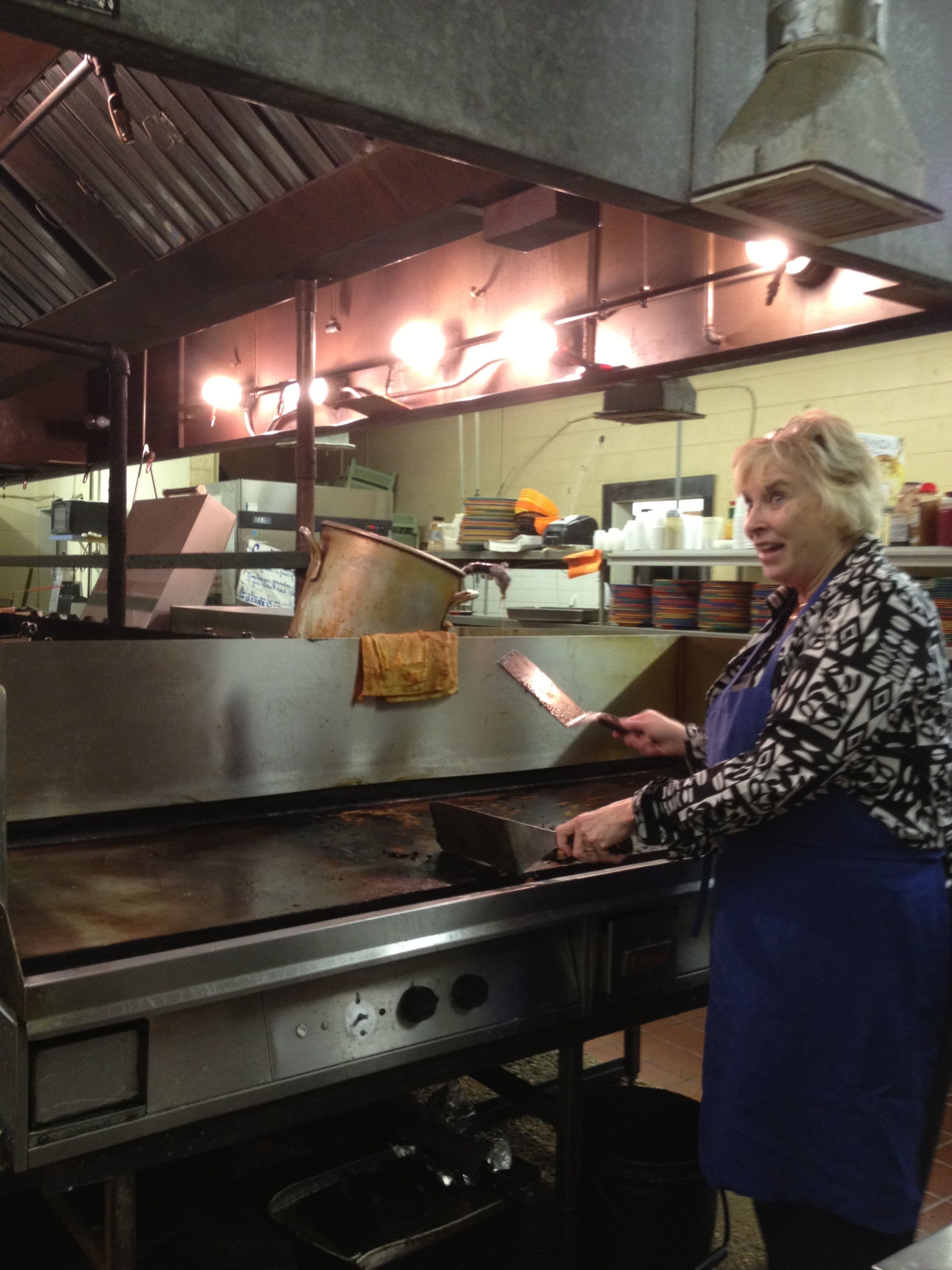
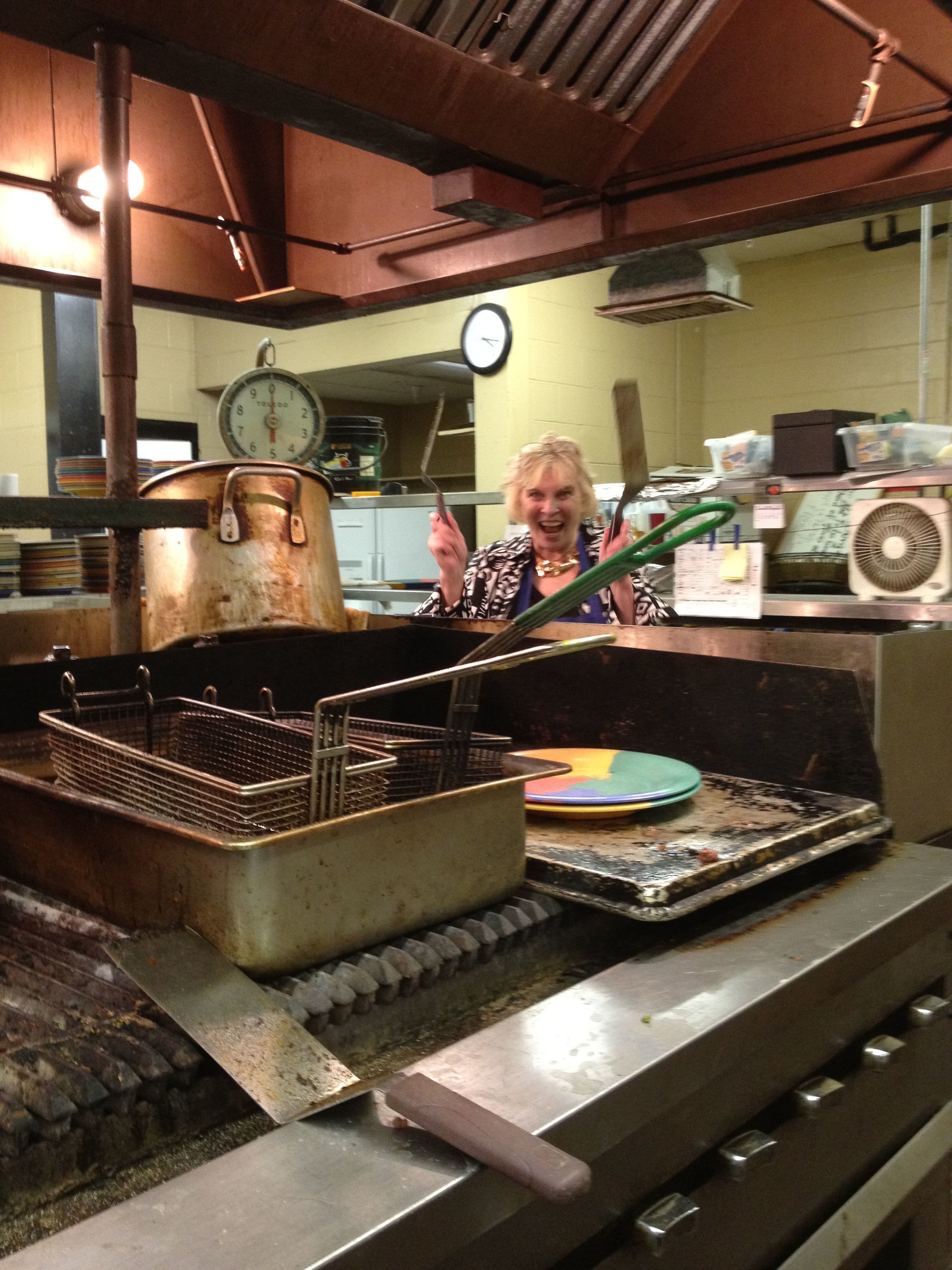
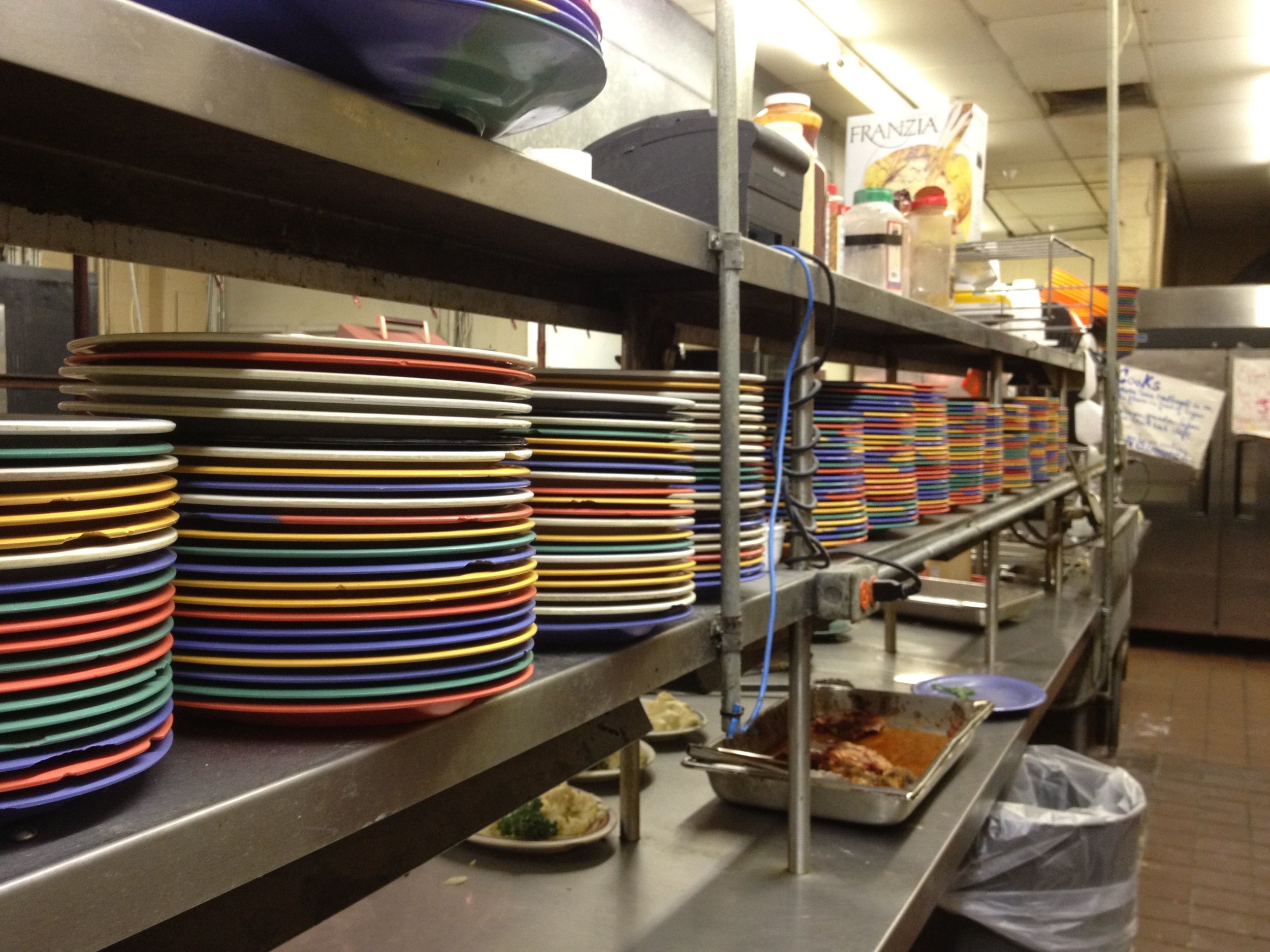
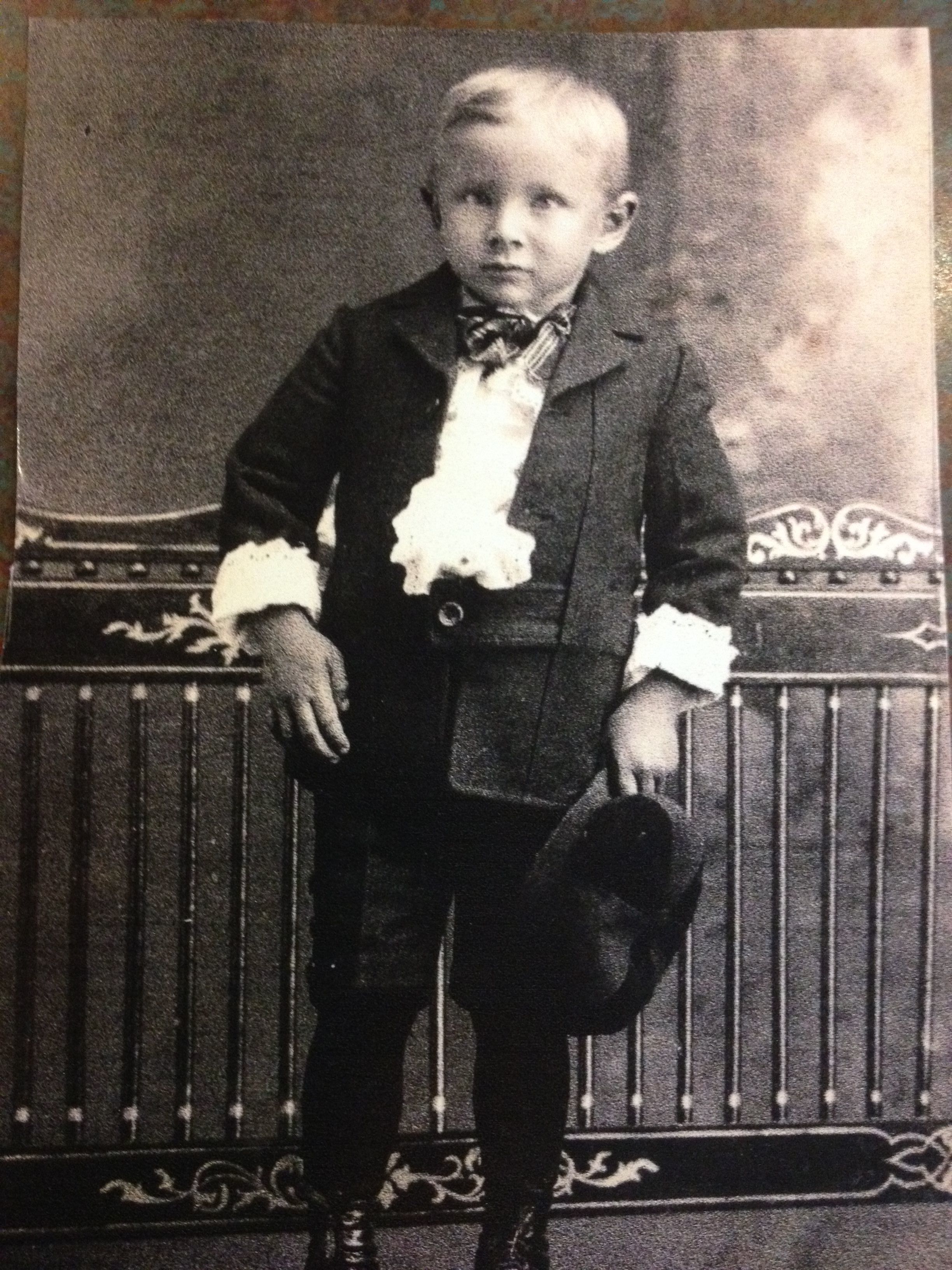
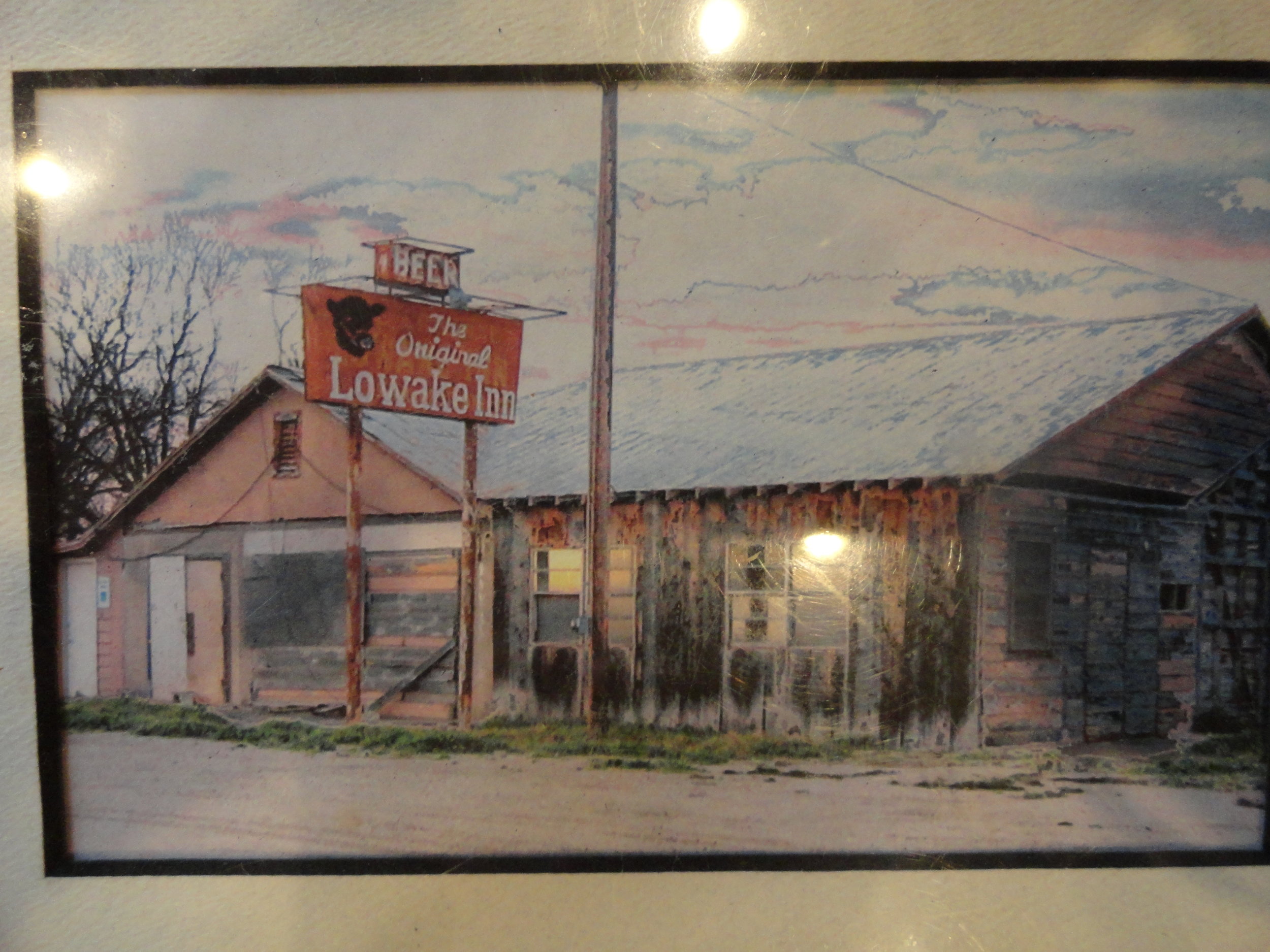
Amanda Gray: Okay, excellent. So, if you would be so kind as to tell us your name, your date of birth, your role, and the name of the restaurant, those four things.
Betty Zentner: Hi, ooh, I don’t say hi do I? [Laughs]. Cut. [Laughs]. My name is Betty Zentner. I’m sixty-three years old. I was born January, the 18th, 1949. I am the owner and operator of Zenter’s Daughter Steakhouse in San Angelo, Texas.
AG: Excellent. And would you mind telling us a bit about, um, your background with—let’s start off with your background, your family’s background here and how you all came to be in this area.
BZ: I guess I probably would start with my father because that’s probably the most as to how the Zentner’s got into the restaurant business, or as my father would say, café business. My father was born November the 24th, Thanksgiving Day, 1899. He was the son, the oldest son of a German immigrant family. His dad established and moved to Rowena, Texas, and after he settled he brought his wife and their first child um, by um, I’m thinking they came, when they came with the family they came through Galveston, but when my grandfather first came across he came through New York. And they lost the first son in, uh, Westphalia, traveling through Westphalia. Anyway, so, he pretty much located with a lot of the same people and from what I can understand is he traveled sort of in a caravan because it was not just the Zentner family. There were a lot of old name families like Laneys, and Swetners, and Barons and Braidens that traveled to Rowena. So I think that his childhood mainly was brought up with his father, August Zentner, and his mother, Caroline, trying to start a, I would say, a saloon, as you could see a saloon in the 1900s. And he stayed pretty much with that. So my dad grew up with that same type of background. I think after awhile, Dad, I have to say, was not very settled into staying—oh I’m absolutely sure he wasn’t settled into—
[Recorder malfunctions and cuts off]
00:03:57 (part 1)
00:00:00 (part 2)
BZ: So, I guess back to how my background started really has to do with the background of my father and his father. So I guess after dad was so involved, I’m trying to think, what was he – his involvement in life was more to do with the public. Loved the public. So I have to say that being the oldest son his job was to help take care of the family. And there were three other brothers and a sister—two sisters. Okay, my voice is getting crazy. So, um. I guess, in those days, it was pretty common that he did pretty much of whatever a young lad would do. He joined the military. He was what he called the stick horse cavalry. If he was born in 1899, he was eighteen—seventeen or eighteen years old at this time. So we’re looking at 1917. He ended up in San Anton, and of all things, my dad was a cook. So his background stayed pretty much the same through the cavalry, the stick horse cavalry. And after he got out of the cavalry he started off pretty much with his entrepreneurship of what he’s gonna do for the rest of his life. And for my father, it was what all was he gonna do for the rest of his life because pretty much I have to say, he always thought the grass was greener on the other side of the pasture. He’d start a business, do something, and decide okay, I can do better than that, sell that business and go to another one. And I can attest to that because in my eighteen years of being at home we probably moved twenty-five times. So, [Laughs]. I think we could have been nomads. He opened restaurants in Lowake, Rowena, Midcalf, which was was how you call Connor, San Angelo. Then he decided that the restaurant business wasn’t exactly for him. He went into the farm business, but then decided he’s going back to Rowena to open another restaurant. Then he went to San Angelo. Opened another restaurant on Avenue K. Helped his brothers open a business in Buffalo Gap, Texas, and opened a business in Del Rio, Texas. These businesses, when I say open a business, they’re all restaurants, steakhouses, or as he called it, cafés. So, in this time of growing up, in and out of different schools, the last thing I think in the world that was ever on my mind was to be in the restaurant business if it meant moving as much as my father. So, the—my idea was to have a good education and make something of myself, because as my father would say, you’re not gonna—you’re a woman, first of all. It’s a man’s world, and you’re not gonna make it in a man’s world, being a woman in the restaurant business.
00:04:54 (part 2)
BZ:The more he would say that to me, the more the challenge was in the back of my mind, and um, I wanted to just dare him to say it one more time. I got to thinking that everything that I know in life has to do with the restaurant, and maybe, maybe, this idea of the last thing I want to do is travel around—that’s not what I wanted to do. But I still thought I wanted something to do with the restaurant and to prove that I could make it in the restaurant. So I, I say it’s my fairytale story, because I felt that the challenge was there, I just had to accept it. I worked a lot after school in my father’s restaurants. I pretty much felt I knew everything there was to know about it. I watched my father butcher. I watched him draw beer. I watched my mother wait on tables. So there wasn’t anything I don’t think I didn’t learn from my parents and that I was beginning to be pretty confident that I couldn’t do. I was going to college at San Angelo State and the opportunity had come to um, further my career. I still had in the back of my mind that I loved the public and this is gonna be something that I really think I’m gonna head in the right direction. So I talked to my dad. Told him my plans. Big mistake. Wrong! [Laughs]. Anyway, he was not that apt with me heading in that direction and he wasn’t ready to help finance me in that direction. So it was learn as much as you can about the business. Stay in the café. Watch what he does. And, oh my gosh, I hate to say but I was thinking I’ll spend the rest of my life waiting on tables in my dad’s restaurant. And I have to say pretty much, can you, just a second. I didn’t get what [unintelligible]—
00:08:14 (part 2)
So I’m looking at spending the rest of my life with my family, my husband, my two children, and working at this little café in Rowena, Texas, at whatever the beck and call of the restaurant required. At that time I wasn’t going anywhere fast and I’m, when I do something I want it done right away. Now. [Laughs]. So, uh, after deciding that I should kind of go do something, anything, but uh, still keep this in the back of my mind. Anyway, to make a long story short on that part, we ended up moving here to San Angelo, ended up working at a department store as a sales lady. Uh, ooh. [Laughs]. Just about the worst 8 to 5 job I could ever imagine that I was meant to do. [Laughs]. And I ended up having—it’s really strange, but in the time that I spent in Rowena I made friends with a lot of customers that came in, a lot of prominent people that came in and always said what I good job I was doing, which was encouragement, but also offered me—
[Recorder malfunctions and cuts off]
00:10:13 (part 2)
Jennifer Rafferty: Okay, okay.
BZ: Anyway, these customers had offered me positions to run a restaurant. They would back me. They had ranches. Lots of cattle. And we’d be in business. [Snaps fingers]. Just like that. Well, that, from my knowledge of the restaurant business, that’s not how it works. I mean, first of all, you don’t buy cattle off of the range. You have to buy cattle from the feedlot. You can’t just take a steer, have it slaughtered, run it through your restaurant. It has to be aged. There’s a lot of parts of the cattle that you don’t serve, and parts that you do. So when it got to explaining to these people and thanking them. Of course, I’m sad in the process because I’m thinking I’m not going anywhere but putting a size twelve dress on a lady that definitely needs to wear a twenty [Laughs].Anyway. So my days were just lost. I was thinking, oh my gosh, I should have finished college. Did something. What was I ever thinking? Anyway, in the process of this department store clerk, a lady came in and we got to be good friends. She got to be a regular customer. And she heard that my name was oops, I bumped into it. We’ll start over on that part. When she heard my name was Zentner, she said oh my gosh, what are you doing here? The, the Zentner name is synonymous with steaks and I have got someone you have got to meet. And I’m thinking, oh my gosh, oh no, not another person I’m going to have to explain the whole routine, barnyard routine to. Anyway, after a couple of weeks she arranged a meeting with her boss and myself. We met at Denny’s restaurant. I remember as if it were yesterday. And uh, I was very nervous. And I’m thinking oh my gosh, I feel so intimidated [Laughs] because I’m gonna talk to this man about actually backing me or putting me in the business. Of course in the back of mind there’s that voice: you can’t do it. You’re a woman and it’s a man’s world. Anyway, we talked for awhile. He told me of a location that he had. It’s in a shopping center that he owns. And he’s had two restaurants at this location and they’ve both gone under. Oh gosh, there’s that challenge now. I can’t wait to hear what my dad’s gonna say now. Two men didn’t make it at this place. Woman, what are you thinking? [Laughs]. Anyway, I’m just at that time after I thought about it, I can, I can do it. There was no fear. Which today I’d probably crumble and run. But I had no fear. I, I was determined. I am not gonna sell another dress. I can do this. So I, I listened to his story more. He told me he wanted me to come see the place. And he said the magic word, it’s like a fairytale. He said, you don’t have to worry about one cent. All I need is your business knowledge of the restaurant. Can you imagine? Oh my gosh. Nothing. I don’t have to go in and ask my dad for money. I’m just gonna be “Voila!” and I’m here in a business. Nothing. Oh, nothing.
00:15:03 (part 2)
Well, a couple of weeks went by. We, he called for me to come look at the business. I walked into this enormous building. I was overwhelmed. I loved it. But I knew that if this was going to be a success, it was gonna be the family that made it successful, not Betty, but the family. So I had to go talk to my dreaded dad [Laughs] about the thing that I’m gonna hear that I’m not gonna make it. And after a couple of months of just pleading with him to just come look at the location and to tell him that this is what I really wanted to do, he said the next time, maybe, if he takes a trip to San Angelo, he would come by and might look at it. It sounded pretty negative to me so I felt that probably it’s not gonna happen. So I went to the next best thing—my mother, and asked Mother, would you talk to Dad on my behalf and just see if you might convince him to come look at it because I know that I’m gonna have to put the Zentner name out on the marquee, and if I don’t have Mr. John Zentner’s approval, there’s not gonna be a Zentner name on the marquee. We’re slamming those plates over there [Laughs]. Anyway, oh I keep pushing that and you keep—Anyway, he did come. He did walk into the business. He was skeptical at turning the key and opening the door, but after that first step in here, my dad’s eyes lit up like a Christmas tree. All I could hear or all I remember him saying is, My God, if I had this place in Lowake, in Lowake Texas, I could have done all sorts of things. And all I was thinking was Yes! [Laughs]. I’ve got him! Anyway, he started walking around and he looked at different parts of the restaurant. He loved the kitchen. It was large enough. He liked the walk-in box. It was large enough he could put his butcher shop in there. And I’m just following him around. And going, I cannot believe. He is just on a roll and we’re gonna open up a big café now. Anyway, um, the business got started. I applied for my license. I did everything that you have to do to properly start a new business. My dad was right by my side. My mother was here helping me. And the rest of my family were all here together. And opening day finally came. It was overwhelming. It was more than I expected. In fact, my parents had to end up selling their home in Rowena, buying a home here in San Angelo. My dad spent all of his time in the kitchen butchering meat, cooking. My mom was on the floor. The business had flourished, too. We added on three more dining rooms, one that seats up to three hundred people. And it was, um, my fairytale story.
00:19:42 (part 2)
BZ: It was just an accomplishment that I could prove to my father that yes, it may be a man’s world, and yes, I felt like everyday I was fighting what it, uh, the difficulty of owning a business. But no matter what, I could do it. And I probably have to thank my father because had he not started off with saying “you can’t,” I probably wouldn’t have. But it was that ambition, that drive, that brought me to this business that I’ve been at for thirty-six plus years. And my dad stayed with me until he was ninety-four years old, running this business, and I have to say, he was so proud of Zentner’s Daughter. He um, would go to different towns and we’d stop at different places and someone would say, oh my gosh, your father came through here and he’d leave matches, Zentner’s Daughter matches. And they go, we just love that man, we just love your place. And I just glowed that he was so proud that I finally did something and accomplished it. Okay, that was the end of take one. [Laughs]. That’s the fairytale part. Now do you want to hear the not so fairytale part? [Laughs].
